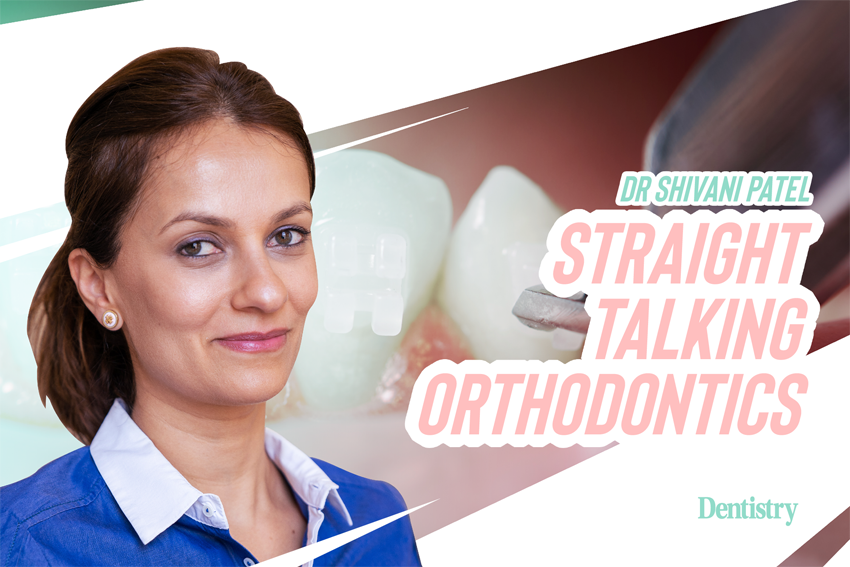
This month, Shivani Patel discusses everything orthodontists need to know about sensitive teeth and how it can impact orthodontic treatment.
Sensitive teeth isn’t a usual orthodontic topic. But as the adult population seeking orthodontics increases, we are seeing a lot more issues pertaining to the adult dentition and the awareness of diagnosis.
Treating the simplicity of a simple issue of sensitivity can sometimes be baffling to the clinician.
Sensitive teeth can mean anything from getting a mild twinge to having severe discomfort that can continue for hours. It can also be a sign of a more serious dental problem.
Who suffers from sensitive teeth?
Many people suffer from sensitive teeth and it’s most common between 20 and 40 year olds.
Although it can affect people in their early teens (especially as many teenagers are grinding their teeth) and people over 70 years (the ageing population are keeping their teeth for longer).
In addition, women are more likely to suffer than men.
What are the causes?
It is generally caused due to the exposure of the underlying dentine on the crown or the root surface due to:
- Tooth brush abrasion – simply brushing too hard with a scrubbing action
- Dental erosion – due to acid attack on the enamel from acidic foods and drinks. This can be seen as erosive pits on the surface of the molars and premolar teeth
- Hyper emesis/bulimia – patients that may suffer from conditions where they vomit frequently can lead to the acidic wear especially of the palatal aspects of the labial surfaces of the upper incisor teeth
- Gum recession – this can be as an action of overzealous tooth brushing or as a result of underlying periodontal disease
- Tooth grinding – this habit of clenching and grinding can lead to the attrition of the enamel on the tooth surfaces
- Cracked teeth or fillings – can be sensitive to extreme temperatures, especially cold.
Traumatic bites especially in deep overbite cases can lead to severe gum loss and recession on the labial aspect of the lower incisor teeth and also the palatal aspect of the upper incisor teeth.
Sometimes recession can be a result of over expansion or proclination of the lower incisor teeth in vulnerable patients that have a thin bio type during orthodontic treatment.
When are teeth more likely to be sensitive?
Usually when eating or drinking something cold, from cold air catching patients teeth and sometimes hot foods and drinks.
Some patients have sensitivity when they have sweet or acidic food and drink. The pain can come, and the intensity can vary.
How can sensitivity be prevented?
- Encourage your patient to only use electric tooth brushes
- Avoid scrubbing tooth brush techniques
- Never use a hard tooth brush
- Avoid sugary foods and drinks
- Avoid acidic foods and drinks – especially water infused with lemon/lime
- Fit hard acrylic night guards if patients clench or grind
- Avoid whitening in patients who already exhibit sensitive teeth
- Orthodontically avoid over expanding or over proclining teeth which leads to thin gingival tissues around the roots, encouraging further thinning or recession from poor oral hygiene or brushing.
How can we treat sensitive teeth?
- There are a variety of brands of toothpastes that are manufactured and targeted at sensitive teeth. Speak with your local reps to understand the ingredients of these and the effectiveness
- Encourage patients to avoid extreme temperature foods and drinks
- Application of fluoride gels and varnishes can be regularly applied to aid in relief
- Exposed roots can be covered with simple fillings
- Large amounts of gum recession can be covered once the periodontal conditions are stable with gum grafts.
Catch up on previous Straight Talking Orthodontics columns:
- Dental technology that’s changing the game for orthodontics
- Don’t neglect the lips and tongue!
- What GDPs should watch out for in children
- An introduction to static occlusal goals.
Follow Dentistry.co.uk on Instagram to keep up with all the latest dental news and trends.


